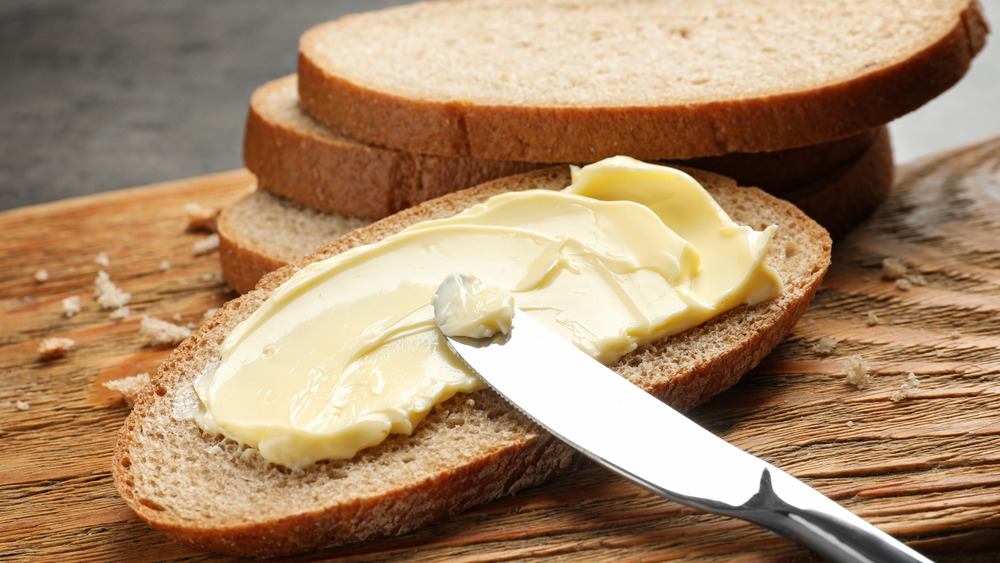Read This Before Eating Anything With BHA
Reading the letter clusters BHA and BHT among the list of a product's ingredients is bad enough. Reading their full names, butylated hydroxyanisole and butylated hydroxytoluene, is even worse. An instinctive reaction during the organic and natural trends is that such opaque ingredients must be bad for us. So, let's see.
In a 2019 piece on the differing food regulations between the U.S. and the EU, The Guardian touched on the two preservatives, for BHA and BHT are indeed preservatives as well as substances that appear in cosmetics and rubber. While they keep fat and oils from spoiling, data gathered by the International Agency for Research on Cancer suggests that BHA is a carcinogen which induces tumors in animals. BHT has similar but slimmer evidence.
Despite the FDA's assurance that BHA is safe when consumed in reasonable amounts, there is, as Scientific American wrote, still a tendency for outlets to advise its readers against buying any products that use the substance. The concern even prompts the article to become heavily sarcastic: "For example, here's a radical idea: eat fresh food or at least food without artificial preservatives." They then also suggest that companies should use natural, non-carcinogenic preservatives. Passing over the fact that such natural foods are more expensive and so may not be an option to everyone, ThoughtCo provides a short list of foodstuffs with BHA: "butter, meats, cereals, chewing gum, baked goods, snack foods, dehydrated potatoes, and beer."
Remember, however, BHA is currently considered safe in small doses.
Why pay for BHA?
Some may read this and wonder why companies would proactively poison their consumer base. Others may wonder why the consumer base would purchase such things. It comes down to close to the same reason: convenience.
Live Science explains that while natural food selections do offer foods preserved with vitamin E, the food industry uses BHA and BHT because they remain stabler at a higher temperature. The importance of this is that BHA and BHT are antioxidants, that is to say they excel at stopping the deterioration of food due to oxygen working upon the carbon bonds of a food's fats and oils. This spoils the food. Antioxidants focus the oxidation onto themselves, allowing the food to stay fresh for longer. Without some kind of effective antioxidant, food storage as it is would be impossible.
Still, people are looking for an alternative solution to BHA and BHT. Chemical & Engineering News covered in 2014 how Naturex had expanded their rosemary extract business when they discovered it naturally stabilized meat. Such changes, however, do not look likely in the near future as MarketsAndMarkets, a market research company, released a press release via PR Newswire that predicted synthetic antioxidants, the type that includes BHA and BHT, will hold the largest market share for the next five years.
So, going forth, it would be best to be aware about what you are eating. However, you don't need to descend into panicked will-drafting if you eat a bit of BHA.

